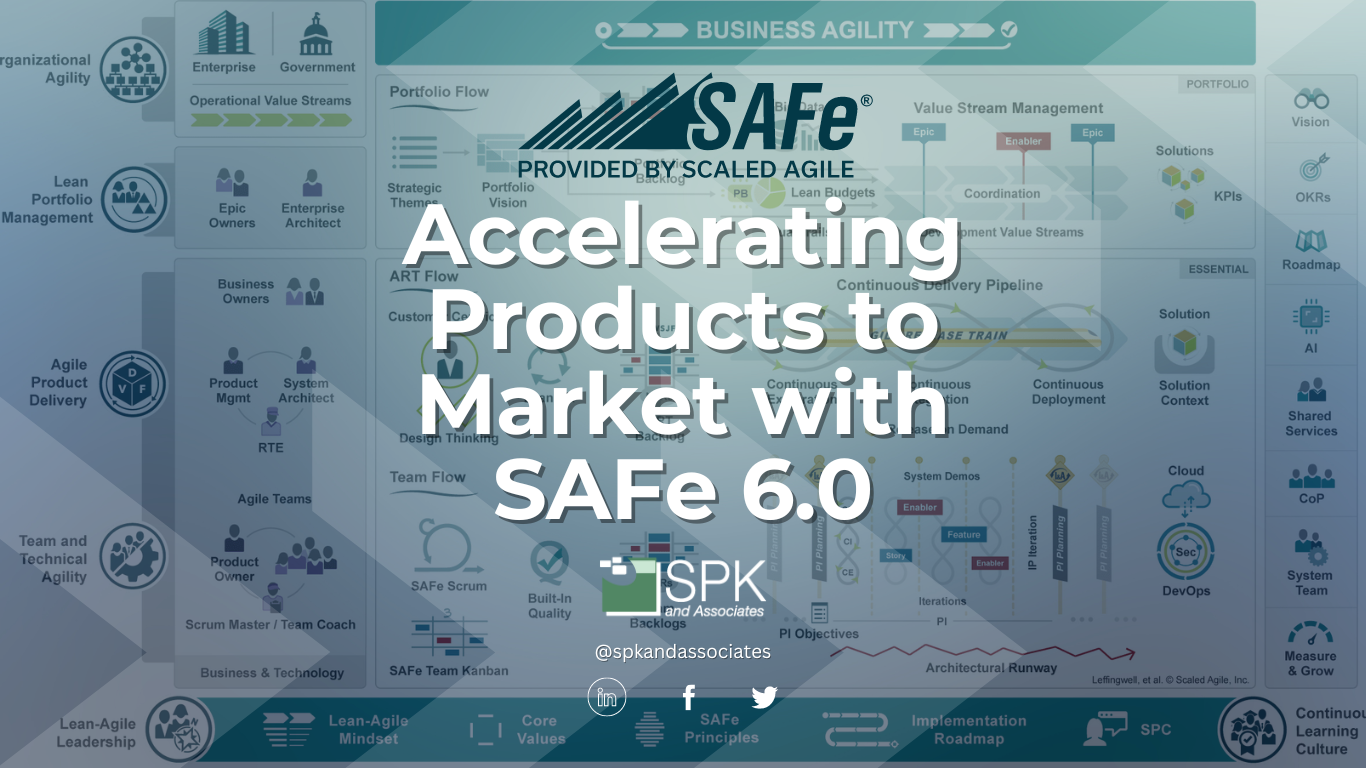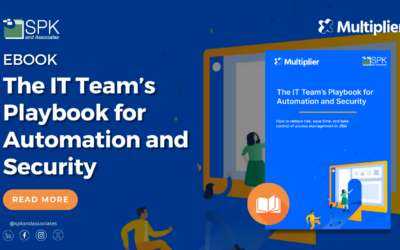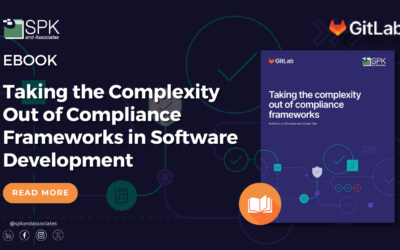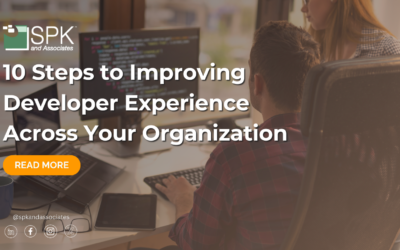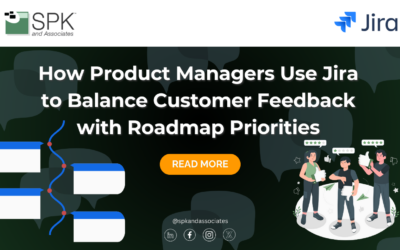Earlier in March 2023, Scaled Agile, Inc., provider of SAFe®, the world’s most trusted system for business agility, announced two new flagship products: SAFe® 6.0 and SAFe® Studio. SAFe 6.0 is the latest version of the Scaled Agile Framework®, which includes courses, certifications, toolkits, and online learning. SAFe Studio is the new platform where SAFe professionals can learn, practice, and manage SAFe. SAFe Studio is taking the place of the SAFe community and will now include enhancements like podcasts, additional video interviews and help from a community of SAFe professionals.
In this blog post, we’ll discuss the core SAFe concepts, and discuss what is new with SAFe 6.0 that will allow organizations to accelerate their product development processes.
What is SAFe?
The Scaled Agile Framework (SAFe) is a framework for scaling Agile methodologies to large organizations. It provides a set of principles, practices, and guidelines for managing and coordinating multiple Agile teams working on a large-scale project. SAFe is designed to help organizations to achieve better alignment, collaboration, and delivery across multiple teams, departments, and business units.
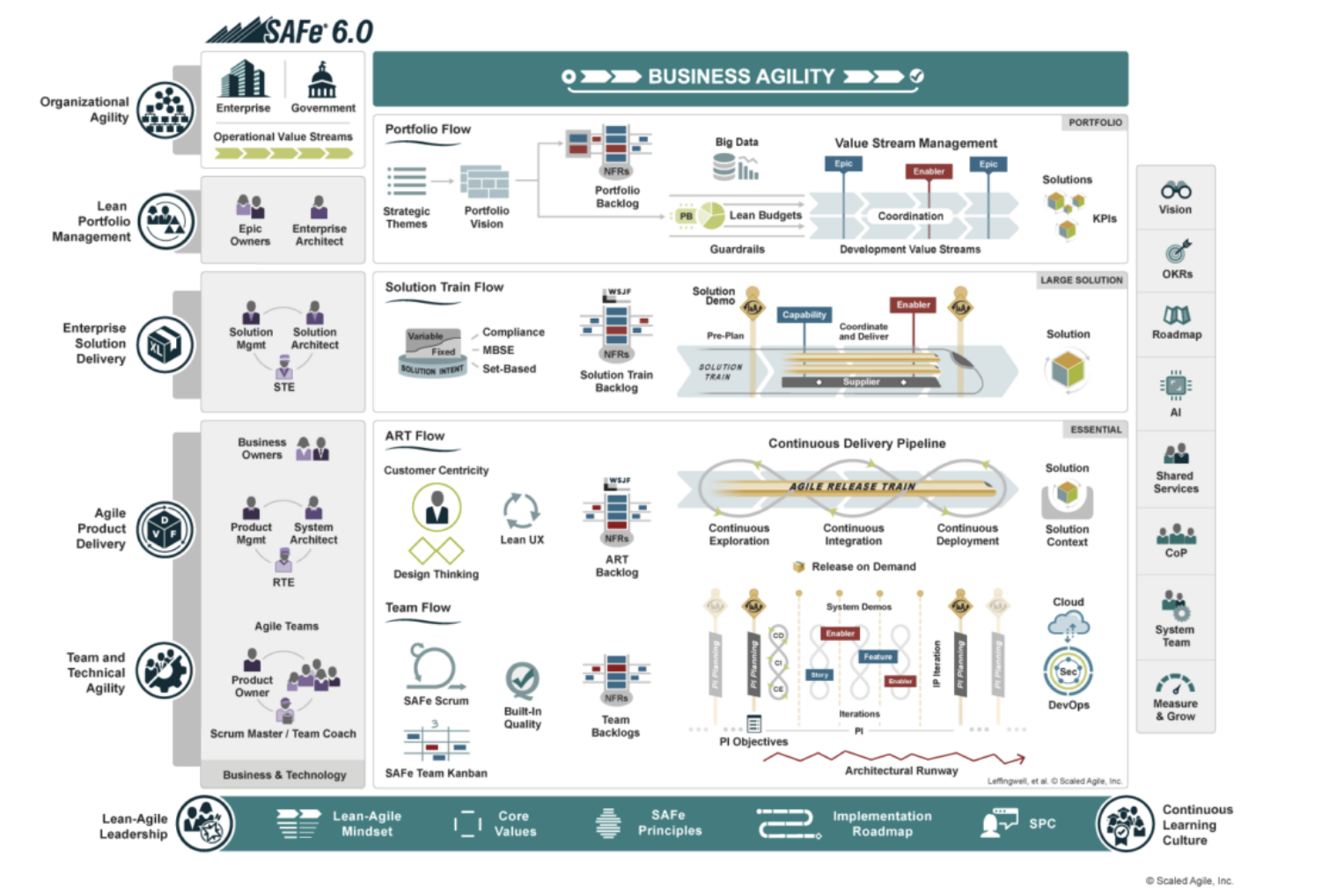
SAFe provides a structured approach to scaling Agile by organizing teams into larger groups, such as Agile Release Trains (ARTs) and Solution Trains, and providing a set of roles, ceremonies, and artifacts to ensure alignment and collaboration. SAFe also emphasizes the importance of Lean-Agile principles and practices, including continuous improvement, Lean thinking, Agile development, and DevOps.
SAFe is used by organizations in a wide range of industries, including software development, healthcare, financial services, and government. It is also widely adopted by large enterprises, such as IBM, Cisco, and Ericsson. SAFe is continually evolving to meet the changing needs of organizations, with new versions and updates released regularly.
SAFe 6.0 Release Themes
In this release, the new SAFe version has six new themes to the existing platform. Let’s cover those six release themes.
Strengthening the Foundation for Business Agility
In an effort to continue its goal of helping businesses adapt to the market and compete, SAFe 6 will focus on business agility, which includes removing the “House of Lean”and now adopting Lean Thinking and the 5 Lean Thinking principles. This theme includes the Business Agility Value Stream (BAVS) and foundation articles associated with it. The goal is to provide a “new, leaner mindset and updated core values.”
Empowering Teams and Clarifying Responsibilities
SAFe 6.0 also focuses on how teams and roles should operate with each other. The framework’s most recent update adds “responsibility wheels” that allow each SAFe role to know who they collaborate with on a regular basis. Some key roles now have key collaborations for them to be successful based upon those that have adopted the framework and attained a high level of trust and collaboration.
Responsibility Wheels – – © Scaled Agile, Inc.
Accelerating Value Flow
A big part of SAFe 6.0 is the focus on flow. This includes the eight common properties of flow which are used to beat competition and satisfy customers. The 8 are listed below and show areas where SAFe practitioners see flow being interrupted. They include 1.) too much work in progress (WIP), 2.) bottlenecks, 3.) handoffs with little or no context, 4.) a lack of feedback or no feedback loop, 5.) batch sizes that are too large, 6.) a long queue or line of work where too much time passes, 7.) work relies on workers to move the work from one state to another, and 8.) policies, either local, team, or company, can slow down the production of work.
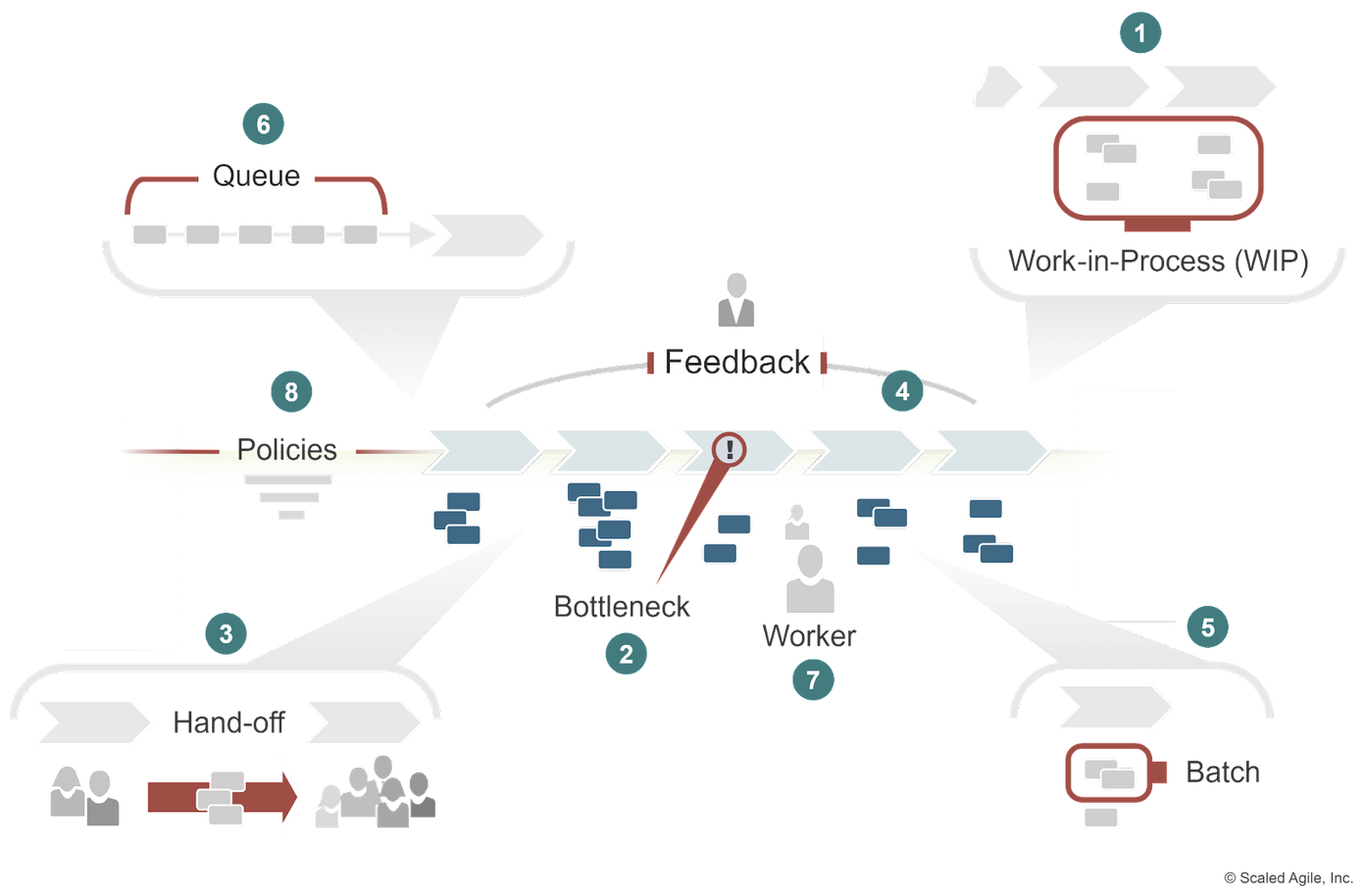
Eight Common Properties of Flow – © Scaled Agile, Inc.
With the eight common properties of flow, SAFe also released the eight flow accelerators which are a set of principles designed to remove the inhibitors of flow.
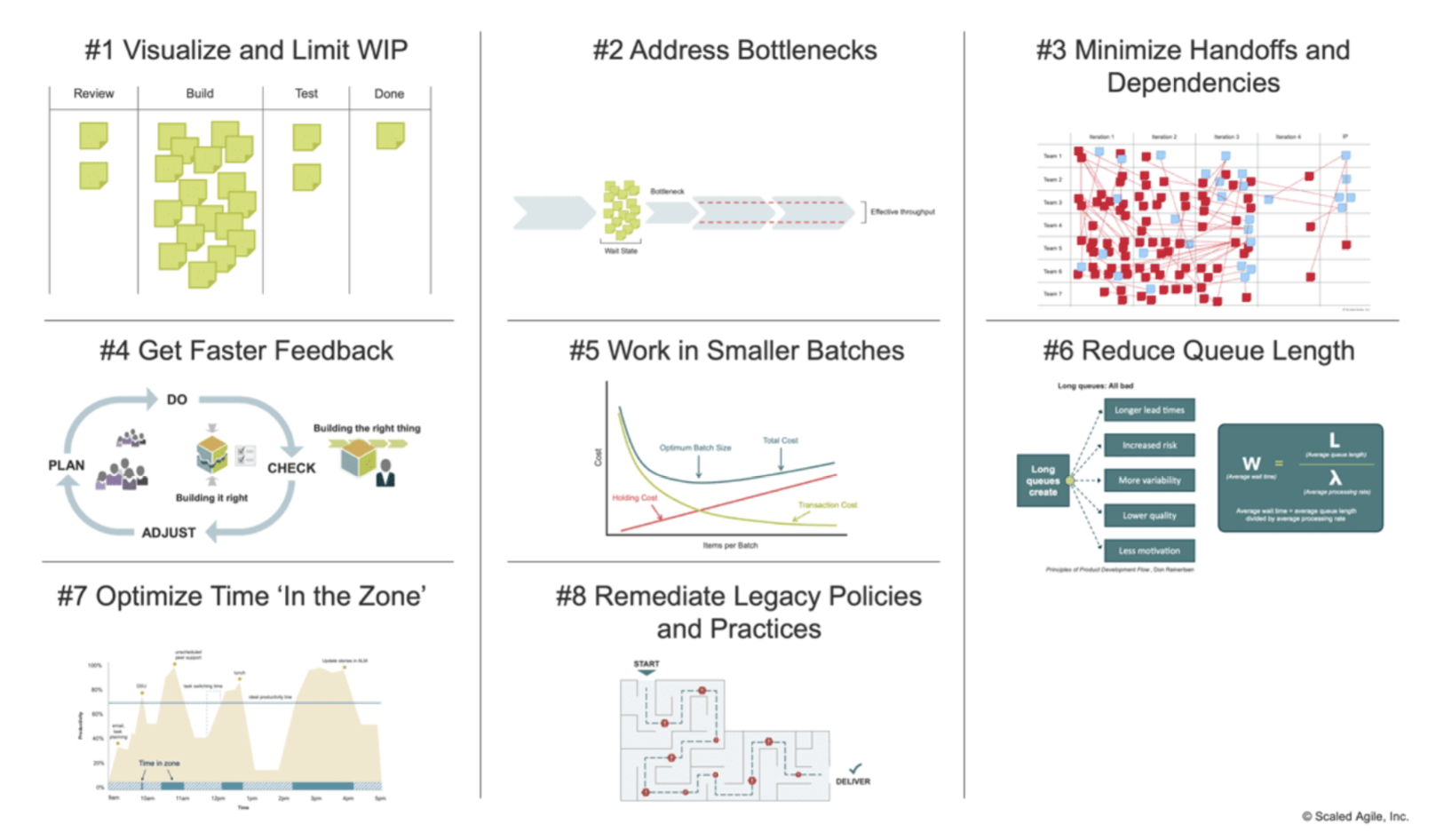
Eight Flow Accelerators – © Scaled Agile, Inc.
To enhance the importance of flow, there have been many flow focused activities added to the official SAFe training courses, including the “SAFe for Teams” training. The release also contains several new articles for Portfolio Flow, Solution Train Flow, ART Flow and Team Flow to talk about the most common issues or challenges around flow at those levels of the organization.
Enhancing business agility with SAFe across the business
SAFe 6.0 has a goal to have Lean-Agile thinking touch all partners of the organization, not just the technical ones. As teams and organizations accelerate towards agility, patterns of success have begun to appear. SAFe experts have collected that information and developed patterns to help SAFe enterprises use SAFe across the board, in all parts of the organization including HR, marketing, accounting, etc.
One main change from the previous version is the focus on Business Enabled ARTs which “includes the technical and business people needed to ensure the solution is aware of the industry in which it operates and that it addresses the relevant concerns for the technology, business, and customer.”This theme also talks about a combined portfolio, which is a type of SAFe portfolio organization that includes both Development and Operational Value Streams. Development Value Streams represent building and operating the technical systems and capabilities to drive operational value. Development Value Streams also may be providing a technical service that an end-customer may never see directly, such as an internal ERP system. Operational Value Streams represent the flow of business which should deliver end-customer value. This value focuses on the end-customer because it aligns with the financial goals of the business.
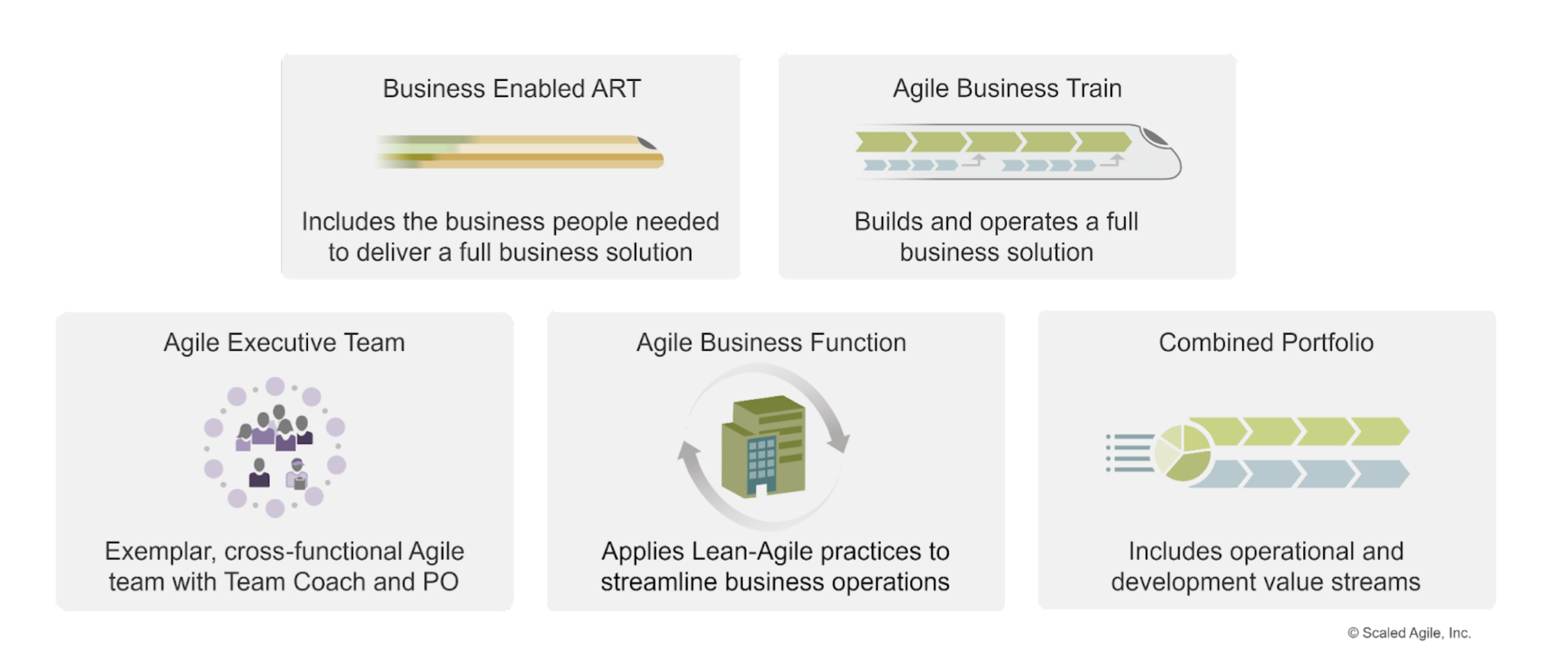
Extended business and technology patterns – © Scaled Agile, Inc.
Building the Future with AI, Big Data and Cloud
SAFe 6.0 has now added technical guidance for the technologies that it believes will provide businesses with a technical competitive advantage. Their aim with this theme is to help enterprises harness these technologies successfully by providing specific guidance or ways that they can implement them in their products and services. SAFe has gone as far as providing decision making guidance and suggestions on how to develop an AI competency. This theme also includes how to include DataOps in SAFe through the use of BigData technologies
Delivering Better Outcomes with Measure and Grow and OKRs
This theme contains more guidance around the original Measure and Grow articles published in previous versions, which now includes OKRs, KPIs, and six different flow metrics that can be applied at multiple levels in the SAFe Big Picture
This Measure and Grow article talks about the 3 critical measures of progress towards agility. These are
- Competency (Do we understand Agile practices to enable Agility?)
- Flow (Are we delivering value?)
- Outcomes (Do our solutions meet the needs of stakeholders and customers?)
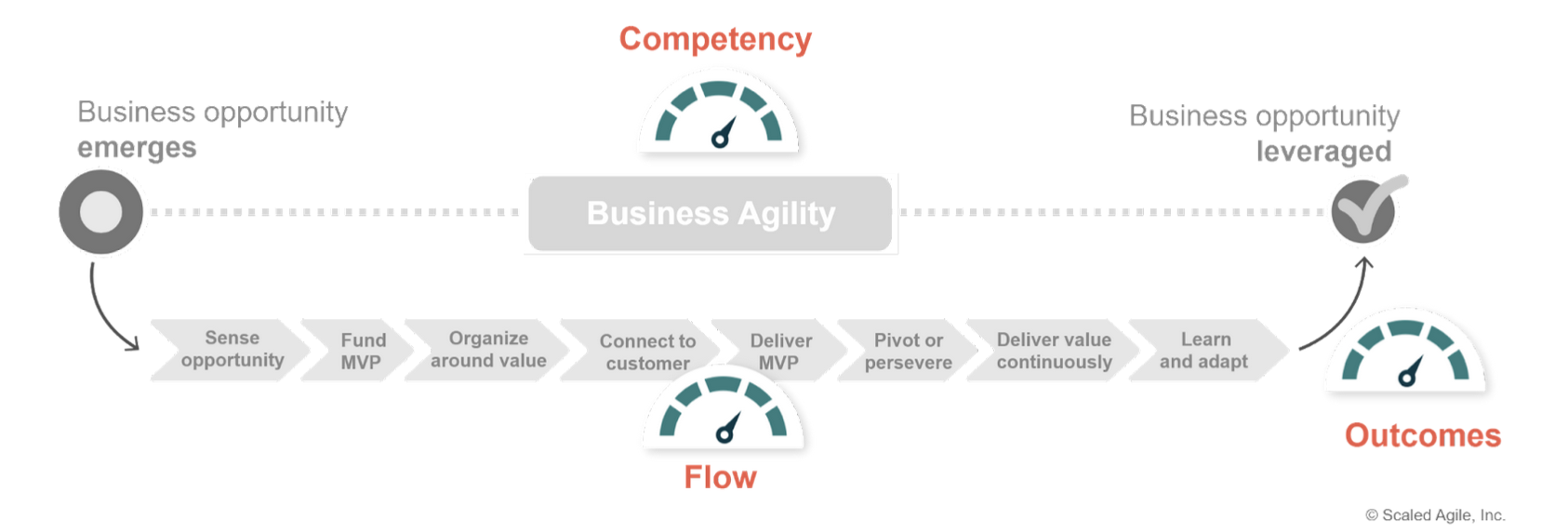
SAFe’s Three measurement domains – © Scaled Agile, Inc.
Using SAFe to Accelerate Product Delivery
SAFe is designed to help organizations accelerate product development by providing a structured approach to scaling Agile methodologies to large, complex projects. Here are some ways in which SAFe can help accelerate product development:
- Alignment and collaboration: SAFe provides a framework for aligning and coordinating multiple Agile teams working on a large-scale project. By aligning the teams around a common set of objectives and priorities, SAFe helps to reduce duplication of effort and ensure that everyone is working towards the same goal. This can improve collaboration and communication, which can accelerate product development.
- Incremental delivery: SAFe emphasizes the importance of delivering working software in short, iterative cycles. By breaking down the development process into smaller, manageable chunks, SAFe helps teams to focus on delivering value quickly and frequently. This can accelerate product development by reducing the time to market and enabling teams to respond more quickly to changing customer needs.
- Continuous improvement: SAFe promotes a culture of continuous improvement, with regular retrospectives and feedback loops built into the framework. By encouraging teams to reflect on their work and identify areas for improvement, SAFe helps to identify bottlenecks and inefficiencies in the development process. This can lead to faster and more efficient product development over time.
- Lean thinking: SAFe incorporates Lean thinking principles, which emphasize the elimination of waste and the optimization of the value stream. By focusing on delivering value to the customer and minimizing waste in the development process, SAFe can help to accelerate product development by improving efficiency and reducing cycle times.
- Empowered teams: SAFe promotes the empowerment of teams, with clear roles and responsibilities and a focus on autonomy and accountability. By giving teams the freedom to make decisions and take ownership of their work, SAFe can improve motivation and engagement, which can lead to faster and more effective product development.
Scaled Agile also has released an updated “SAFe Implementation Roadmap” diagram, which includes several changes from the previous versions.
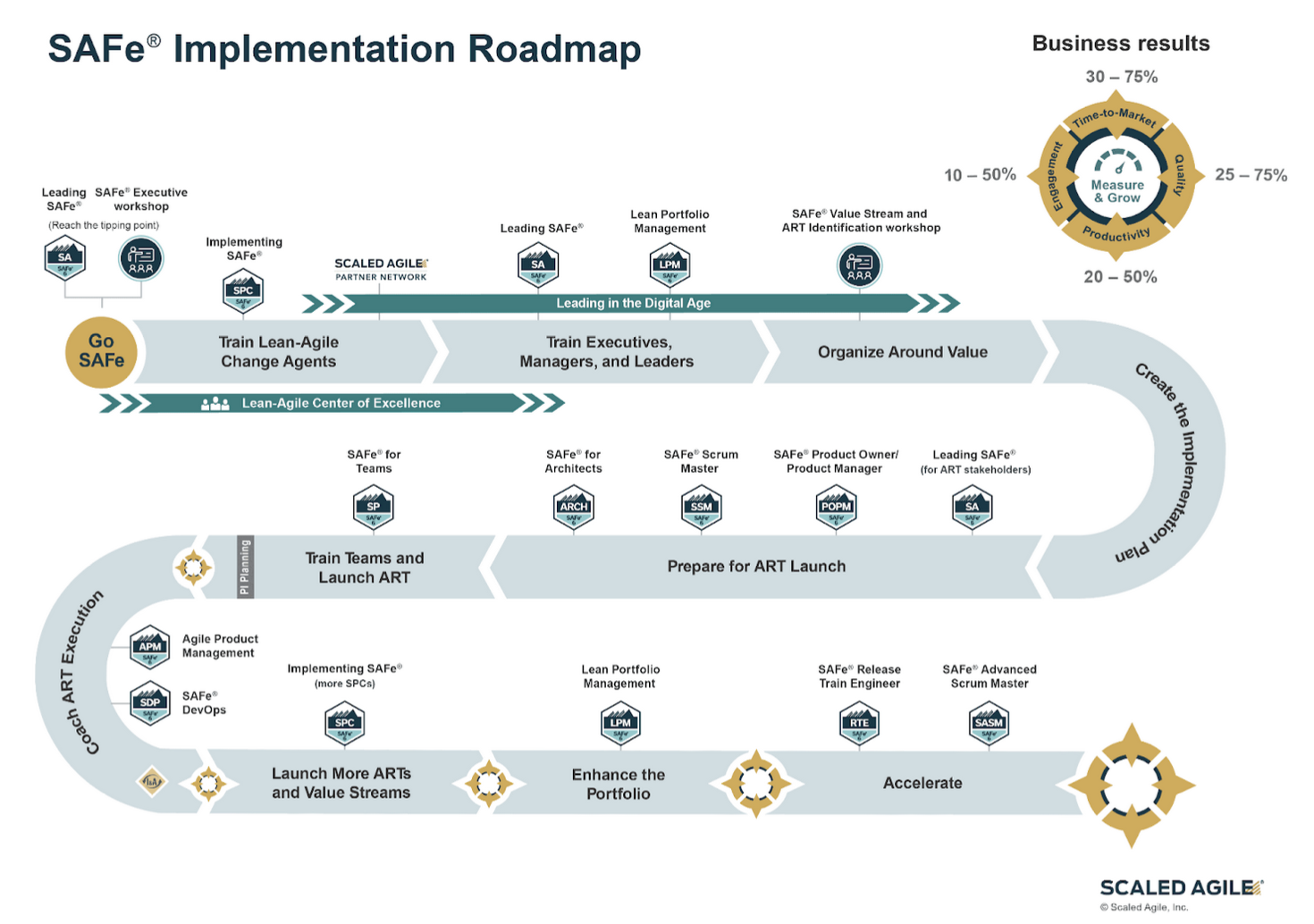
SAFe 6.0 Implementation Roadmap – © Scaled Agile, Inc.
Conclusion
While SPK is not a partner of the Scaled Agile Framework, we do have experts on staff that are certified and familiar with the framework. This familiarity allows us to adapt to the needs you may have during any engagement. These engagements would include tools like Atlassian’s Jira Software or PTC’s Codebeamer to align with the SAFe framework, for which we are partners with those providers. Contact an SPK expert today to learn how we can help your SAFe journey and accelerate your product delivery.


